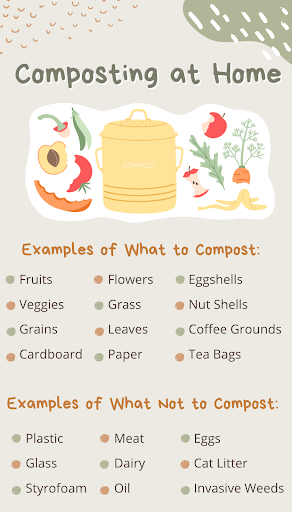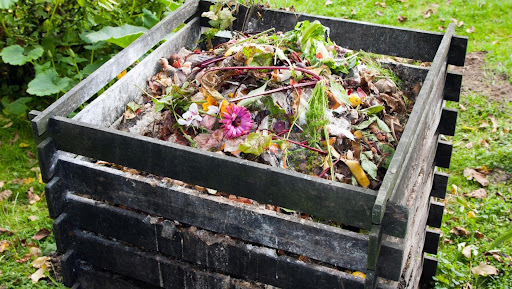What is Composting?
Every day millions of Americans throw their food waste into the trash, from apple cores to coffee grounds. But what if you could dispose of these scraps in an environmentally friendly way that can be used to enrich the soil in your garden?
That’s right – composting is the solution!
Composting is an easy, eco-friendly way of disposing of food waste that you can implement right at home. Decomposers such as bacteria, fungi, and even worms, break down food and yard waste, turning them into a fluffy material that can be utilized in your garden or houseplants.
Nutrient-rich compost is a great way to improve the health and well-being of your plants. Farmers even often refer to compost as “black gold”. It is a natural and chemical-free way to improve your garden without using potentially harmful fertilizers. Compost also improves the water retention for your plants and reduces the risk of your plants being overrun by pests and bugs.
Not only does composting help your garden, but it also helps our planet! Composting reduces the amount of unnecessary food waste taking up valuable space in landfills and reduces your family’s carbon footprint. This means all the great nutrients that could be added back to the earth are lost!
Let’s Start Composting!
To begin composting, begin collecting food scraps that you typically throw away. This could be as simple as a banana peel or the grounds from your morning cup of coffee! While you are in the process of gathering materials for your compost, you can store your scraps in a Tupperware or bag in your fridge or freezer. Any large bits should be cut into smaller pieces to increase surface area. An increase in surface area allows for decomposers to do their work faster(Michel et al.).
There are two main types of compost materials –“green” and “brown.” Green materials include food waste and grass clippings, whereas brown materials consist of branches, twigs, dead leaves, paper, and cardboard. Green waste should NEVER have meat, dairy products, oils, or pet waste as these will potentially jeopardize your compost’s health. Refer to the “What Can I Compost” infographic to get some inspiration about what to include!
There are a few different methods of composting, depending on your living situation.
If you have a yard, start by finding a spot that is roughly three feet by three feet. You can either choose to use a dedicated composting bin or create a pile. If you chose to use a bin, it should be roughly 3 feet in depth and have proper drainage. If the bin is much larger than this, it will become difficult to turn. You can create your compost by creating skinny layers of green and brown waste, with the final layer being brown. When assembling your compost, you should aim to have at least twice as many browns as you have greens.
If you don’t have access to a yard, you can start a compost bin right on your kitchen counter! If you are interested in composting indoors, check out this short video by NC State University on vermicomposting to see the science and methodology behind using worms to decompose our food!
Compost is alive! Because decomposers are living organisms, water and oxygen are vital for survival. Your compost pile should be turned roughly every month to aerate the material at the bottom. By rotating the compost often, you will help the materials decompose faster. You should ensure that your compost does not become too dry. If it starts to dry out, water it until it feels like a wrung-out sponge. Placing your compost in a shady area can help the pile stay moist for longer; however, it may cause the compost to take longer to break down (Composting in Your Backyard, 2021).
The timeframe for compost to be ready for use can be as quick as three months or as long as three years. This is highly dependent on the temperature in the environment, how often it is aerated, and how often it receives water. On your first try, your compost pile may not be as successful, but with enough patience and practice, you will have lovely, earthy compost to feed a healthier planet.
Dig into These References and Learn More
Composting in Your Backyard. Minnesota Pollution Control Agency. (2021, March 3). Retrieved October 12, 2021, from https://www.pca.state.mn.us/waste/composting-your-backyard.
Michel, F. C., Hoitink, H. A. J., & Heimlich, J. E. (n.d.). Ohio State University Extension Fact Sheet. Retrieved October 12, 2021, from
https://therockpile.com/wp-content/uploads/2010/01/OhioStateFact-Composting.pdf.





Leave A Comment